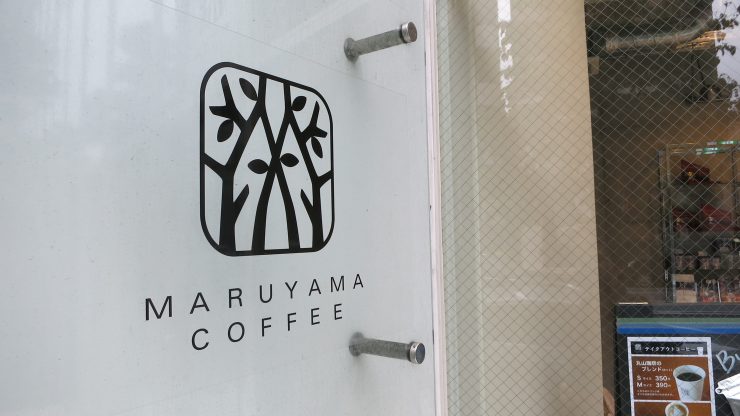
Maruyama Coffee may have made its latest stamp on the world with Hidenori Izaki’s win at the 2014 World Barista Championship, but the company’s actually been at this coffee thing for almost twenty-five years. In fact, until Yoshikazu Iwase’s recent win, competitors from Maruyama had taken home the Japan Barista Championship title five years running.
That said, I’d heard that this all improbably started out of a kissaten at a bed and breakfast in the countryside of Karuizawa, Nagano. I’d also seen pictures of president Kentaro Maruyama—the bright smile, the bubbly face, The Beatles-esque bowl cut—and I wondered.
I wondered about the journey from small-time coffee roaster to respected specialty coffee shop, and the motivations that turned passionate baristas into competition winners. I wondered about the story behind the name.
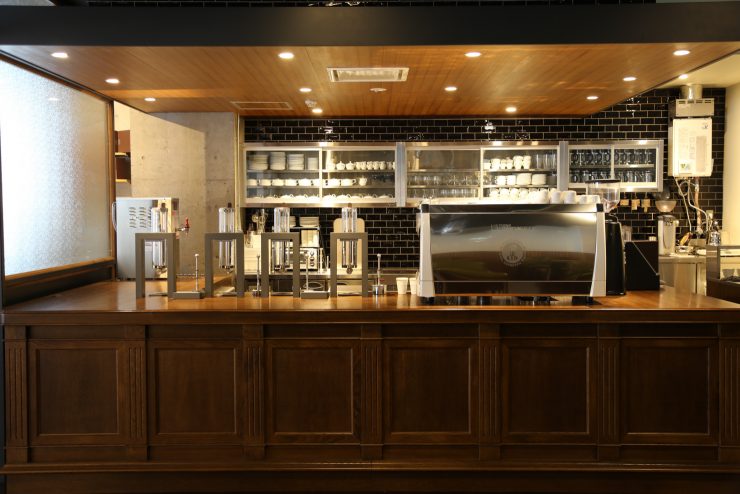
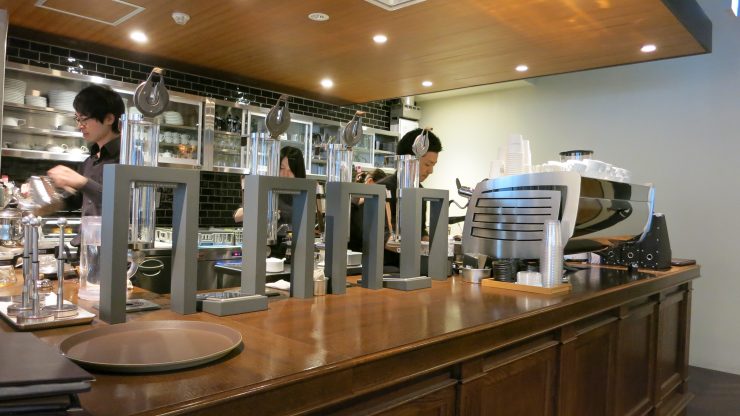
And so I found myself in Nishi-Azabu, at Maruyama Coffee’s most recently established Tokyo cafe. It’s a location that balances stylish and high-tech with simple and elegant—behind an Alpha Dominche Steampunk and a Victoria Arduino Black Eagle espresso machine, a crew of black-shirted baristas move with efficiency, grace, and speed. It’s a quiet storm, and a fascinating contrast to the relaxed interior of green sofas, white-tiled walls, and hanging greenery.
As I sat down to chat with Yoshinobu Nakayama and Roselle Kingsbury, I looked at the wall by the entrance—a display of some 30 different coffees, complete with descriptions and photos of the farms, fruits, and people they came from. I thought of the roasting, cupping, and planning to prep these coffees for stores, and it all seemed a long, long way from that bed and breakfast in Nagano.
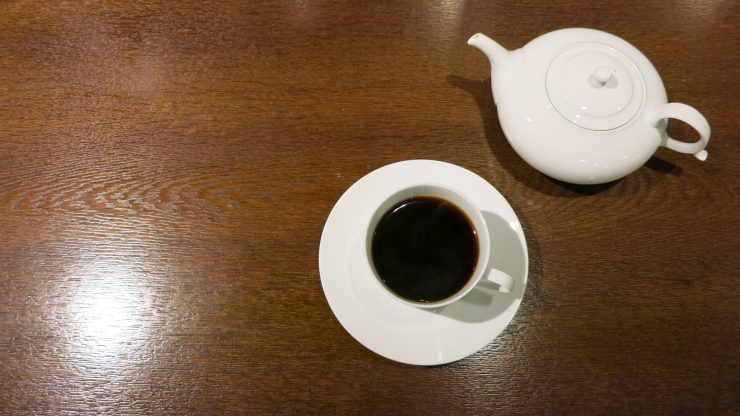
On Humble Beginnings
I’m told Maruyama was a young man of 23—and a little lost as to what to do with his life—when he first started in coffee. With only English skills up his sleeve, he considered opening a cafe initially as something fun, and something of worth.
Not long after starting up in Karuizawa in 1991, he fell in with the growing jikabaisen—or home roasting—trend that was sweeping Japan, and spent the next decade on the hunt for the perfect roasting technique. However, some ten years and ten thousand hours later, Maruyama came to a realization that would change the path of his life and his business.
Turns out, however much you tinker with it, and however well you roast it, quality coffee starts with the beans themselves—it always starts at the source.
Intrigued, Maruyama gathered like-minded coffee roasters around Japan to share and expand knowledge, and began attending international specialty coffee events. In 2001, he started making trips to source locations.
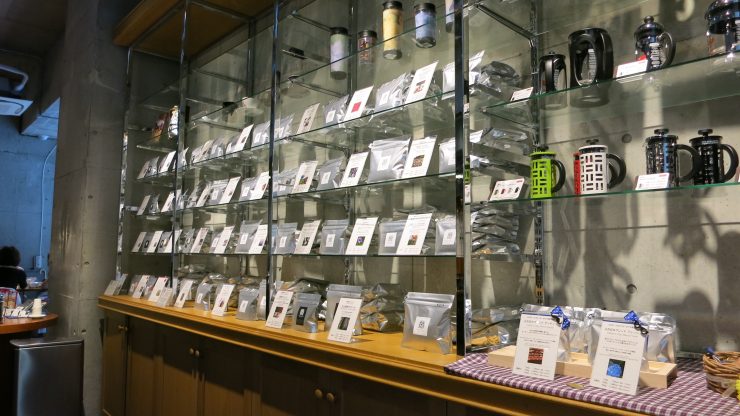
Developing Quality Through Expansion
Maruyama knew developing quality coffee wasn’t just about visiting the source locations, of course. It was something to constantly work towards, by creating and developing bonds of trust and friendship with producers and farmers. Consistent investment would create for producers a steady income, and that money could funnel back into their farms, improving standards for both the coffee and the employees.
The problem was scale—Maruyama had been buying and roasting enough coffee for the customers at his own store, but further investment in larger lots meant surplus, which potentially meant waste. The solution had to be expansion—simply put, more cafes could provide more coffee—but making the idea a reality was a much deeper project than first realized.
For expansion to really work, quality needed to be ensured from start to finish. Roasters needed to be trained to bring out the best in the green beans. After that, there was a need to train baristas to understand the source, the coffees, and the extraction. Training began, the stores began to spread, and by 2006, Maruyama had its first entry in the Japan Barista Championship.
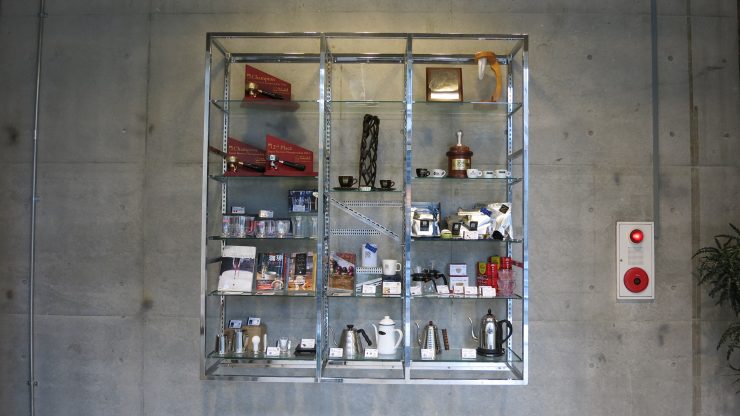
All For One, And One For All
Nakayama tells me that competition is a shared endeavor—that baristas enter competition equipped with the knowledge, experience, and support of those who came before. Mie Nakahara was the first Maruyama Coffee barista to advance to the World Barista Championship in 2010, and it was her experience and coaching that was an invaluable part of Miki Suzuki’s trip to the WBC finals in both 2011 and 2012. These two experiences, in turn, became the support for Hidenori Izaki on his first attempt in 2013, and his eventual win in 2014.
It’s the classic “all for one, one for all” story.
What surprised me is that Maruyama competition baristas are selected not simply for their knowledge and skill, but for their personality, their teamwork, and their interactions with customers. Nakayama says it’s in their ningensei—their human nature. “Victory is not something that a barista can accomplish by their own efforts alone,” he adds. “A barista who doesn’t take care of their daily work will not have the team behind them. It’s important for the barista to have a personality that draws the support of those around them.”
A perfectly brewed cup of coffee is one thing, it’s true—but sometimes we forget that it’s never just a single person that goes into the making of that particular cup.
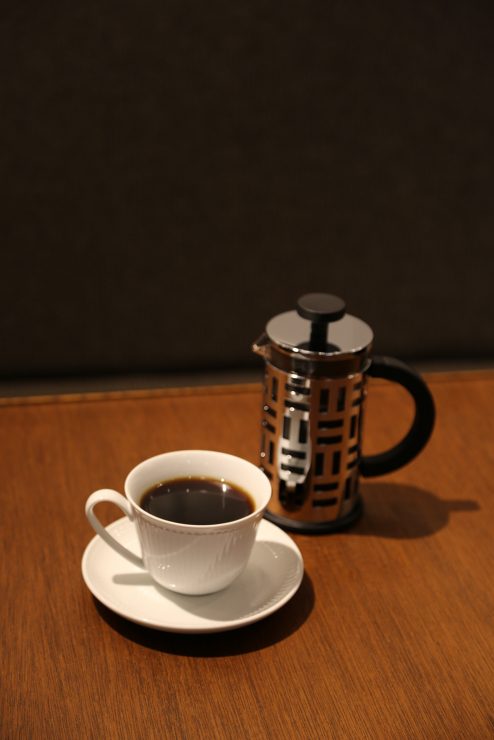
Simplicity And French Press
It all seemed quite simple, at the heart of it—man wants to share good coffee, finds good coffee, trains good staff. But it was fascinating to see the simplicity filter all the way down to French press coffee—the Maruyama standard since 2003.
It’s a subtle message, and yet one that quietly conveys the ease with which coffee can be made in the comfort of your own home. French press is, after all, one of the easiest methods to replicate—just pour, wait, and press.
This is my favorite aspect of the Maruyama Coffee approach—that however big the company gets, and however much success their baristas achieve, their feelings are clear in this one customer service decision: “this is a coffee experience we want you to take home with you, and we’ll show you how to do it.”
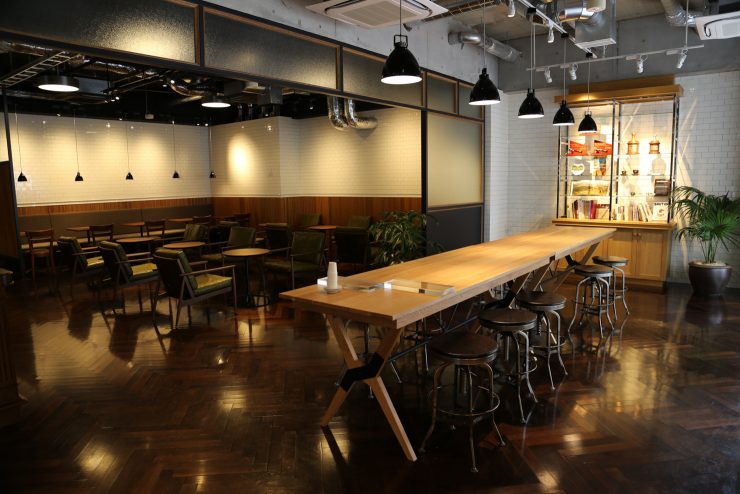
And in that way, I reflected—perhaps this ritzy Nishi-Azabu cafe wasn’t so different from a quiet bed and breakfast in Karuizawa after all.
Maruyama Coffee is located at 3 Chome-13-3 Nishiazabu, Minato-ku, Toky0.
Hengtee Lim (@Hent03) is a Sprudge.com staff writer based in Tokyo. Read more Hengtee Lim on Sprudge.
The post A Brief History Of Japan’s Remarkable Maruyama Coffee appeared first on Sprudge.

